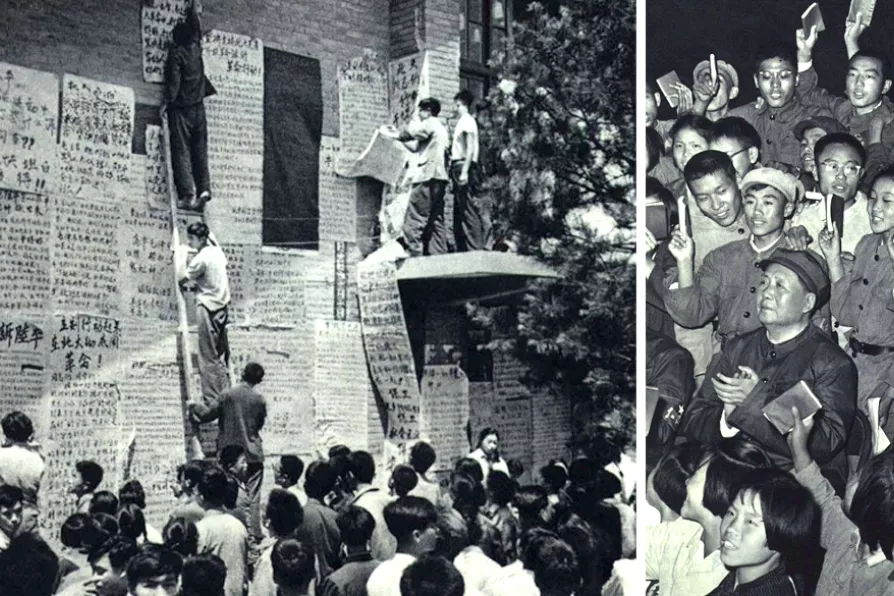Labour prospects in May elections may be irrevocably damaged by Birmingham Council’s costly refusal to settle the year-long dispute, warns STEVE WRIGHT

 REVOLUTIONARY FERVOUR: (L to R) Big-characters posted on the campus of Peking University and Mao Zedong and Lin Biao surrounded by rallying Red Guards in Beijing on December 1 1966
[China Pictorial/Creative Commons]
REVOLUTIONARY FERVOUR: (L to R) Big-characters posted on the campus of Peking University and Mao Zedong and Lin Biao surrounded by rallying Red Guards in Beijing on December 1 1966
[China Pictorial/Creative Commons]
THE Cultural Revolution started in 1966 as a mass movement of university and school students, incited and encouraged by Mao and others on the left of the CPC leadership.
Student groups formed in Beijing calling themselves Red Guards and taking up Mao’s call to “thoroughly criticise and repudiate the reactionary bourgeois ideas in the sphere of academic work, education, journalism, literature and art.”
The students produced “big-character posters” (dazibao) setting out their analysis against, and making their demands of, anti-revolutionary bourgeois elements in authority.

BEN CHACKO welcomes a masterful analysis that puts class struggle back at the heart of our understanding of China’s revolution

STEPHEN BELL reports from a delegation that traced the steps of China’s socialist revolution from its first modest meetings to the Red Army’s epic 9,000km battle to create the modern nation that today defies every capitalist assumption

Activists from across the world gathered in China for an educational exchange where they witnessed the progress the country has made in building an ecological society and discussed the path to peaceful international relations, reports CALLUM NORRIS











